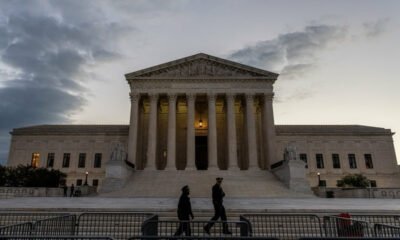Business
Judge Halts Trump’s Assault on NIH Research Funding

A federal judge has temporarily blocked a proposed $4 billion cut to the National Institutes of Health (NIH) research funding, responding to legal challenges from various states and institutions. U.S. District Judge Angel Kelley, appointed by President Joe Biden, issued a preliminary injunction, arguing that the cuts pose “pressing, irreparable harm” to researchers, patients, and health care providers.
In her detailed ruling, Kelley emphasized the severe consequences of the NIH’s plan to reduce rates on indirect research grants from an average of 30% down to a cap of 15%. This significant reduction could eliminate around $4 billion designated for biomedical research, potentially halting essential clinical trials across the nation and leading to widespread job losses among medical researchers.
Michigan Attorney General Dana Nessel highlighted the potential dangers of these funding cuts during a press conference, noting that they could adversely affect critical research on diseases such as cancer and emerging threats like bird flu. Nessel was one of 22 state attorneys general who filed a lawsuit against the administration shortly after the NIH’s announcement.
Kelley’s ruling pauses the funding cuts indefinitely at a national level, considering the clear public interest in maintaining health and safety. The judge stated that the risks associated with allowing the funding reductions to proceed far outweigh any potential benefits of implementing them.
In her order, Kelley articulated the dire implications these cuts would have on ongoing research and the lives of patients relying on clinical trials. She acknowledged the profound commitment such trials represent for individuals suffering from rare and serious diseases, who may have no alternative treatments available.
The ruling also raises concerns about the welfare of thousands of animals involved in research critical to human health. Leslie Brunelli from Washington State University disclosed that approximately 90,000 animals are used in research at the institution, asserting that the Trump administration’s proposed cuts would lead to a “massive loss of life.” Kelley noted the difficulty of quantifying the impact of lost lives, whether human or animal, stemming from halted research initiatives.
This NIH policy change reflects a larger trend of budget cuts proposed by the Trump administration, which has prioritized reducing federal spending in favor of private sector solutions. The administration’s previous attempts to reduce NIH funding during Trump’s first term were ultimately unsuccessful but indicate a continued push toward slashing government support for scientific research.


















